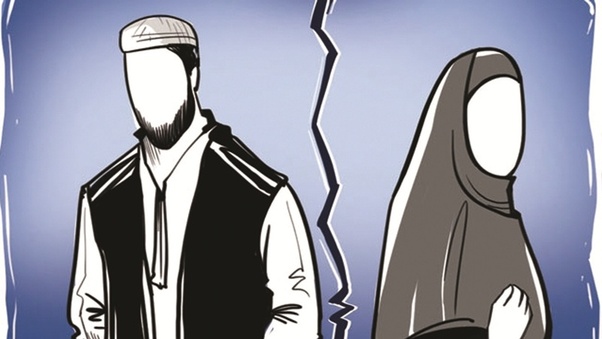
Divorce, or “Talaq,” in Islam is a serious matter governed by a set of rules and regulations. These guidelines ensure that the rights of all parties, particularly women, are protected. Islamic teachings emphasize justice, compassion, and fairness in handling divorce, aiming to uphold the dignity and honor of divorced women. This article explores the rights and responsibilities of divorced women in Islam, shedding light on the legal, social, and financial aspects according to Islamic law.
Al Dirassa Institute offers specialized courses in Islamic Jurisprudence and Laws, equipping students with a comprehensive understanding of Sharia principles and their practical applications.
Don’t want to go through the translation anymore?
30 free minutes with your qualified Egyptian teacher.
One of the key rights granted to divorced women in Islam is the right to financial maintenance during the waiting period, known as iddah. This period, typically lasting three menstrual cycles or, in the case of a pregnant woman, until she gives birth, allows for reconciliation or ensures that the woman is not pregnant before remarrying. During this time, the husband must provide for her needs, including food, clothing, and shelter, ensuring she is not financially burdened.
The mahr, or dowry, is a financial gift given to the wife by the husband at the time of marriage. In the case of divorce, the wife is entitled to keep the full mahr, as it is considered her personal property. This dowry serves as a form of security for the woman and is seen as a token of respect and responsibility from the husband. Islam strictly forbids the husband from demanding the return of the dowry unless the divorce is initiated by the wife through khula’ (where she agrees to give back the dowry in exchange for the divorce).
Divorced women have the right to custody of their children, especially during their early years, as Islamic law emphasizes the mother’s nurturing role. The specific rules around custody may vary depending on the school of thought, but generally, the mother retains custody unless she remarries. Additionally, the father is required to financially support the children, regardless of the custody arrangement. This ensures that the children’s needs are met, and the mother is not burdened with their sole financial responsibility.
In Islam, divorce is considered a last resort after all efforts of reconciliation have failed. Even when divorce occurs, both parties must maintain respect and dignity toward one another. The Quran encourages divorced couples to separate amicably:
“And when you divorce women and they have fulfilled their terms, either reasonably keep them or reasonably release them…” (Quran 2:231).
This highlights the importance of treating the woman with fairness and respect, avoiding any form of abuse or mistreatment.
One of the primary responsibilities of a divorced woman is to observe the iddah period. This waiting period serves multiple purposes: it ensures that any possibility of pregnancy is clarified, allows for emotional and psychological healing, and provides a window for potential reconciliation. During this time, the woman is not permitted to marry another man, and she should remain in the home provided by her husband unless there are compelling reasons for her to leave.
After divorce, a woman is expected to continue upholding the Islamic values of modesty and decorum. If she has children, her primary responsibility remains their upbringing, and she should strive to create a stable, nurturing environment for them. Divorced women in Islam are seen as crucial figures in maintaining the moral and emotional well-being of their children, even in the absence of the father.
Although divorce can be emotionally challenging, Islam encourages divorced women to maintain good relations with their ex-husbands, especially if they share children. Mutual respect and cooperation are emphasized to ensure the welfare of the children and to maintain peace within the family and the broader community. This includes fulfilling any agreed-upon visitation rights and collaborating on the children’s upbringing.
Al Dirassa Institute offers Islamic studies programs designed to enhance students’ understanding of the Laws of Religion and Islamic Sharia.
To know more: Best Online Quran Tafsir Courses.
Discover the experiences of our delighted clients who have thoroughly enjoyed utilizing this standout feature.
Alhamdulillah I‘m very pleased with the arabic and Qur’an lessons I receive from teacher Umm Tasneem and I‘m also content with the al-dirassa administration team who were very quick in answering any questions I had. In a month I progressed a lot and I cannot wait to continue my studies with al-dirassa. May Allah reward everyone at al-dirassa.
Verified review - view original
My Qur’an teacher is fantastic, she teaches me in a loving and kind way where I look forward to the lessons and learn so much. My Arabic teacher is equally as nice and has a lot of patience with me, she has great expertise in the field and I’ve progressed really quickly with her. Thank you Al-dirassa!
Verified review - view original

Al-dirassa Institute offers you a gift to help you begin your journey to being fluent in Arabic and learning the Quran.

Al-dirassa Institute offers you a gift to help you begin your journey to being fluent in Arabic and learning the Quran.